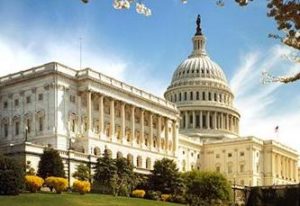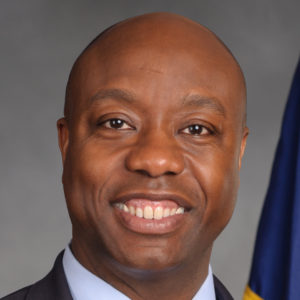 Many historically Black colleges and universities and other so-called “minority-serving institutions” faced an uncertain future as Congress was deadlocked since October 1 on providing federal funds to support their operation. But now a bipartisan solution has been reached by the U.S. Senate. Early, the House had passed legislation to provide funding for HBCUs so it is expected the legislation will be fast-tracked to the President’s desk. The White House has signaled they would support the bill.
Many historically Black colleges and universities and other so-called “minority-serving institutions” faced an uncertain future as Congress was deadlocked since October 1 on providing federal funds to support their operation. But now a bipartisan solution has been reached by the U.S. Senate. Early, the House had passed legislation to provide funding for HBCUs so it is expected the legislation will be fast-tracked to the President’s desk. The White House has signaled they would support the bill.
The Fostering Undergraduate Talent by Unlocking Resources for Education (FUTURE) Act provides $255 million annually for HBCUs and other minority-serving institutions such as tribal colleges, Hispanic-serving institutions and predominantly Black colleges and universities that are not designated as HBCUs. (Historically Black colleges and universities, by law, must have been founded prior to the enactment of the Civil Rights Act of 1964.)
The agreement will fund the appropriations for HBCUs by streamlining the federal student loan process. Savings are expected to fully fund the money earmarked for colleges and universities.
Lamar Alexander, a Republican senator from Tennessee and chair of the Senate Education Committee, said “it’s hard to think of a piece of legislation that would have more of a lasting impact on minority students and their families than this bill. First, it provides permanent funding for HBCUs and other Minority Serving Institutions attended by over 2 million minority students. Second, it takes a big first step in simplifying the FAFSA for 20 million American families, including 8 million minority students, and eliminating the bureaucratic nightmare created by requiring students to give the federal government the same information twice.”

“The FUTURE Act will provide much-needed long-term financial stability to our nation’s HBCUs and other minority-serving institutions,” added Senator Tim Scott of South Carolina. “I am proud to support this bipartisan solution, which reauthorizes HBCU and MSI funding without putting taxpayers on the hook, and which takes a vital first step towards streamlining and simplifying the FAFSA form. This bill is a win for students, families, and taxpayers.”












